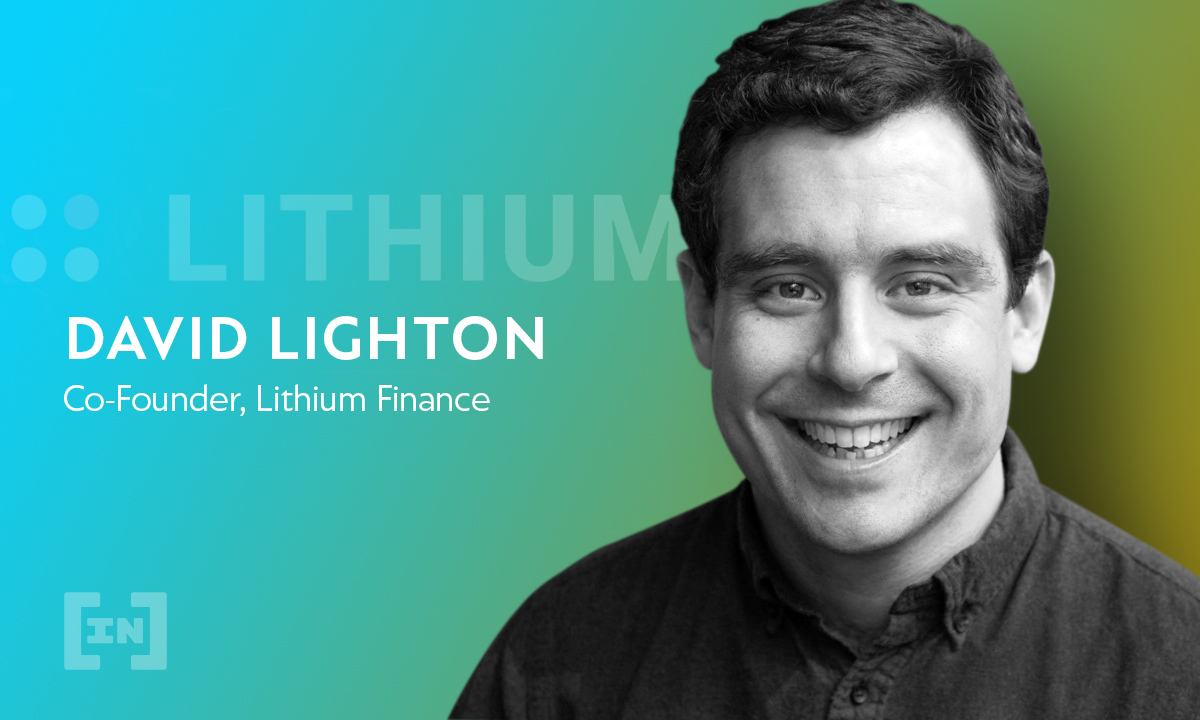Lithium Finance Founder on Incentivising Collective Intelligence With DeFi
3 min readBeinCrypto spoke to David Lighton, co-founder of Lithium Finance, about how his DeFi protocol uses collective intelligence to evaluate illiquid assets.
The DeFi explosion has brought with it an exciting new world of opportunity. For Lighton, this area has grown new ways to address and correct economic problems.
“As we saw last summer with the explosion of DeFi projects and returns, we are experiencing a multi-decade expansion and maturity of tools and solutions for the world to use to solve many economic, financial, and other problems,” says Lighton.
“The global economy is about to grow very fast and we’re only at the beginning.”
However, this doesn’t mean the DeFi space is all positive movement. As with anything new, there have been issues within the space that also need viable solutions.
For Lighton, this issue was illiquid assets. Information on these assets without a liquid market is hard to come by. This despite interest from parties like DeFi applications and venture capitalists.
As a result, Lighton built Lithium Finance with co-founder Steve Derezinski. This platform provides a way to stake information on assets that is not easily available using tokens.
It decided to place value on information from experts who could provide these difficult-to-find answers.
Building wisdom nodes
Lithium Finance works in a unique way. It has what it calls a “wisdom seeker” who asks a question to the platform with a LITH token bounty staked. In return, people, which it calls “wisdom nodes” such as brokers and analysts, provide staked answers.
“A protocol like this has never been available before, and it has the power to price many types of assets. Previously pricing an illiquid asset would require hiring experts, checking credentials and manual appraisals, slow and expensive.”
“What has been proven is that there are many experts out there who do not have traditional degrees who are very good at providing very good estimates,” he explains.
The protocol takes all the answers provided by these experts. They are aggregated, and answers are randomly selected to create the final answer.
This final answer is then revealed with the source so that users can verify and validate the answer themselves. The final scores for users are calculated using the DMI-Mechanism algorithms.
In the case of an IPO, once the platform reveals the final answer, rewards are paid out. Those whose answers were closest receive rewards. This is also reflected in each wisdom node’s reputation presented on the platform.
Pricing the Coinbase IPO correctly
Lithium’s key example for its protocol’s use is IPOs. For investors interested in getting involved in a company pre-IPO, Lithium offers a way to get information on its possible pricing.
As an example, Lighton references the recent Coinbase IPO. This groundbreaking moment for the industry came with significant speculation.
“Prior to the Coinbase IPO, everyone wanted to know ‘What will Coinbase IPO at?’ We ran our set of questions to the wisdom nodes and discovered a price of around $90 billion. Well, we thought this was too low, and it should be more like $150 billion or $200 billion! But once the Coinbase IPO came, sure enough, it priced around the value, the Lithium Protocol said it would be.”
DeFi for answers and incentives
However, asking being to contribute their insights into this system requires a decent incentive. This is where Lithium’s native token comes in.
It acts as the key incentive mechanism for wisdom seekers and wisdom nodes.
“We like the focus on Lithium tokens for incentives to create a growing and appreciating ecosystem and to encourage early adopters as their tokens appreciate as more users come on board, and more seekers look for answers to their pricing questions.”
“Given all of this, we are exploring other avenues to enable more people to participate by allowing users who only provide answers, as well as those who both ask and answer questions,” he says.
“In other words, just bring your brain and no traditional fiat currency and start earning money by playing our pricing engine.”
The post Lithium Finance Founder on Incentivising Collective Intelligence With DeFi appeared first on BeInCrypto.







